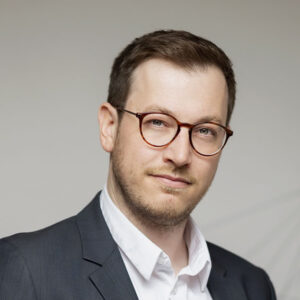The annual meeting was held this year in New Delhi, India, from 4 to 6 April. Mission Innovation (MI) leaders gathered in person for the first time since early 2020 to review, discuss and set MI’s strategy and work plan for the coming year.
The internal event, hosted by the MI Secretariat in close collaboration with the Steering Committee and hosted by MI member India, was attended by high-level officials from member governments and their collaborating organisations. The meeting opened with a ceremony for the participants, which was presided over by the Minister of Biotechnology, Dr Rajesh Gokhale.
NOW GmbH Managing Director Kurt-Christoph von Knobelsdorff was on location in the capacity of Senior Representative for the Clean Hydrogen Mission on behalf of the Federal Ministry for Economic Affairs and Climate (Bundesministerium für Wirtschaft und Klima). The goal is to advance cross-sector networking and coordination within the framework of the “Hydrogen Technologies 2030” research offensive at the interface between energy and transport.
International cooperation for innovation
Mission Innovation brings together governments from every continent, international organisations and private sector investors in a drive to push forward global investment and collaboration. Mission Innovation’s 23 members include the countries: Austria, Australia, Brazil, Canada, Chile, China, Denmark, Finland, France, Germany, India, Italy, Japan, Republic of Korea, Morocco, Netherlands, Norway, Saudi Arabia, Sweden, United Arab Emirates, United Kingdom, United States and the European Commission (on behalf of the European Union).
Over the course of the three-day programme, high-level leaders in the field of clean energy innovation shared insights on national priorities and forged ahead with MI’s strategic priorities for 2022. The MI agenda focused on how collaboration between governments can accelerate innovation and contribute to the ‘Year of Implementation’. A further priority for the MI is to ensure that long-term impact is maximised through both building partnerships and increasing capacity, as well as continuing to position the MI as the main international clean energy innovation forum.
Following the launch of an ambitious second phase of the MI initiative in June 2021, MI 2.0, the meeting provided a decisive opportunity to come to agreement on the actions needed in the decade of global clean energy innovation. Five of the total seven missions were launched last year. They focus on power systems, hydrogen, shipping, urban transformation and reducing carbon dioxide and will accelerate technologies to facilitate the clean energy transition. Combined with missions yet to come, the MI missions have the potential to unlock affordable decarbonisation pathways for sectors responsible for 52% of current global emissions.
Another key element of the MI 2.0 vision is the agreement of members to develop National Innovation Pathways (NIPs) that align with their individual climate and energy goals. An entire session at the meeting will be dedicated to MI countries providing insights into their national innovation strategies, discussing how they have developed them, and outlining the benefits of these plans for national investments and priorities.
Discussions to continue at MI-7
For the first time, the MI annual meeting and the World Assembly of Clean Energy Ministers (CEM) events will be held back-to-back. The joint MI and CEM programme content on 6 April will foster synergies between innovation and deployment efforts and set the stage for the seventh MI Ministerial Meeting in September 2022. This year’s annual meeting will provide a platform for high-level MI representatives to establish priorities, make progress and reach decisions on the outcomes of the upcoming MI-7 meeting.

